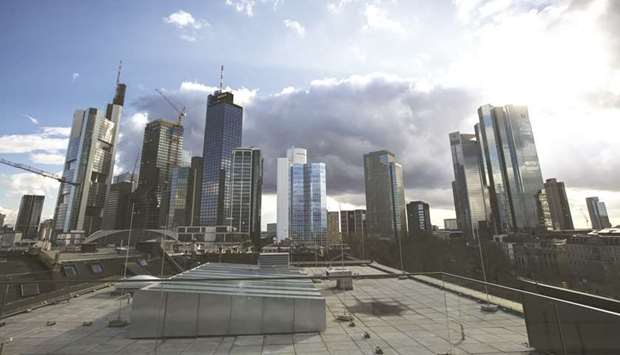German business morale improved unexpectedly in March after six consecutive drops, a survey showed yesterday, suggesting that Europe’s largest economy is likely to pick up in the coming months after it narrowly avoided a recession last year.
The growth outlook for Germany’s export-reliant economy has been clouded by trade disputes triggered by US President Donald Trump’s ‘America First’ policies and the risk of Britain crashing out of the European Union without an agreement.
The Munich-based Ifo economic institute said its business climate index rose to 99.6 from an upwardly revised 98.7 in the previous month.
This beat a consensus forecast for a reading of 98.5.
The euro, as well as government bond yields and stocks in the single currency bloc rose after the rise in German business sentiment took the edge off market fears about a dire economic outlook.
“The German economy is showing resilience,” Ifo President Clemens Fuest said.
Companies were more satisfied with their current business situation and they were more optimistic about their business outlook for the coming six months, the survey showed.
“Brexit uncertainty is particularly hitting the industrial sector. The other sectors don’t appear to be affected,” Ifo economist Klaus Wohlrabe told Reuters.
Wohlrabe said the survey results supported Ifo’s forecast that the German economy would grow by 0.6% in 2019.
“The Ifo survey is a big surprise, especially after the last purchasing managers index,” UniCredit economist Andreas Rees said.
Markit’s survey among purchasing managers showed last week that manufacturing contracted further in March to reach the lowest level since August 2012.
Rees said that the risk of the German economy sliding into a recession had decreased with the latest Ifo figures. “It’s too early, however, to talk about an economic turnaround,” he added.
Joerg Zeuner, an economist at state-owned KfW bank, said the improved business climate was a sign of hope but not more. “The economic train is still in the slow lane — and the biggest obstacle is manufacturing,” Zeuner added.
Trump’s threat to increase tariffs on cars and auto parts imported from the EU is of particular concern to German car makers for whom the United States is the most important export market.
The German government said in January it expected growth to slow to 1.0% this year after 1.4% in 2018 and 2.2% in 2017.
Berlin will update its forecast next month.

Skyscrapers are seen on the financial centre ‘Mainhattan’ skyline in Frankfurt. The growth outlook for Germany’s export-reliant economy has been clouded by trade disputes triggered by US President Donald Trump’s ‘America First’ policies and the risk of Britain crashing out of the European Union without an agreement.
